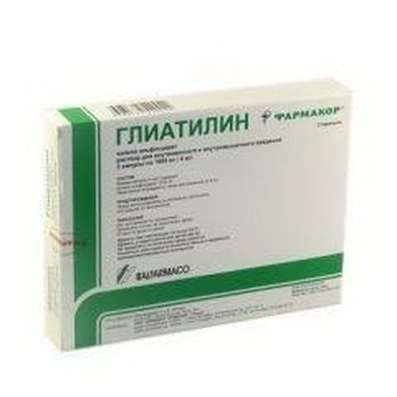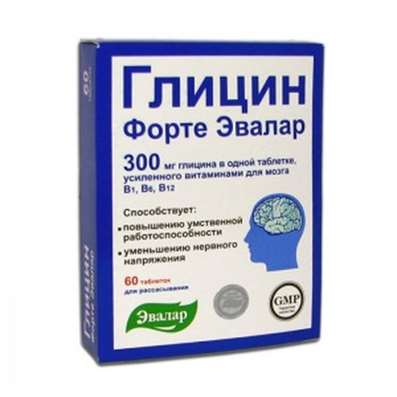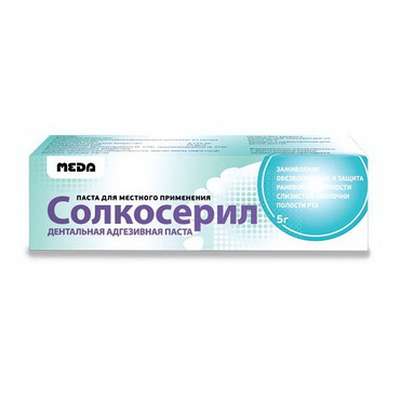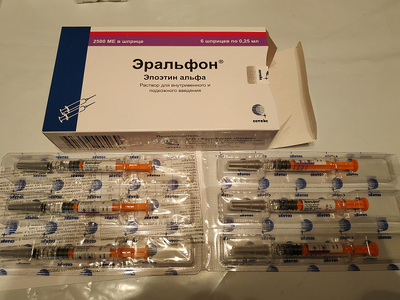Instruction for use: Ginos
I want this, give me price
Dosage form: film-coated tablets
Active substance: Extractum foliorum Ginkgo bilobae
ATX
N06DX02 Ginkgo Biloba leaves
Pharmacological groups
Nootropics
Antiaggregants
Angioprotectors and microcirculatory correctors
Correctors of cerebral circulation disorders
The nosological classification (ICD-10)
F41.9 Anxiety disorder, unspecified: Neurotic disorders with anxiety syndrome; Severe anxiety; Neuro-like symptomatology; Neuro-like disorders; Neuro-like conditions; Neuroses with anxiety symptoms; Neuroses with a sense of anxiety; Acute situational and stress anxiety; Acute attack of anxiety; Severe Anxiety; Situational Anxiety Disorder; State of anxiety; Anxious and delusional component; Alarming state; Anxiety; Anxiety Disorders; Anxiety syndrome; Sense of anxiety; Alarm conditions; Chronic neurotic anxiety; Susto; Psychopathy with a predominance of anxiety and anxiety; Anxiety disorders in neurotic and neurosis-like states; Anxious neuroses; Anxious and delusional state; Acute situational stress alarm; Depressed mood with elements of anxiety
G47 Sleep disorders
G93.4 Unspecified Encephalopathy: bilirubin encephalopathy; lacunarity status; Tremor when portal-systemic encephalopathy; The latent hepatic encephalopathy; Atherosclerotic encephalopathy; Hypertensive encephalopathy; hypoxic encephalopathy; dismetabolic encephalopathy; Encephalopathy; brain lesion; Porto-caval encephalopathy; Vascular encephalopathy; Traumatic encephalopathy; encephalopathy; encephalopathy; Encephalopathy secondary genesis; Encephalopathy discirculatory; Encephalopathy portocaval; epileptic encephalopathy; hemorrhagic shock and encephalopathy syndrome; Subacute spongiform encephalopathy
H81.4 Vertigo of central origin: Vertigo labyrinthine origin; vestibular vertigo; Vertigo of vascular origin
H81.8 Other disorders of vestibular function: Cogan's syndrome
H93.1 Tinnitus (subjective): Tinnitus; kohleovestibulyarny disorder; Cochle-vestibular disorders ischemic nature; tinnitus
I69.4 Stroke consequences, not specified as a hemorrhage or cerebral infarction: States after a stroke; Post-stroke state; The consequence of a stroke
I73.0 Raynaud's Syndrome: Raynaud's syndrome Leriche; Raynaud's disease; Raynaud's phenomenon; RaynaudLeriche syndrome; Raynaud's disease; Raynaud's syndrome with trophic disorders; Peripheral angiopathy
I99 Other and unspecified disorders of the circulatory system: angiopathy; Arterial angiopathy; Atherosclerotic angiopathy; Hemodynamic right heart defects; Hemodynamic defect of the right heart; coronary angiopathy; Infringement of blood circulation; Violation of circulation; Violation microcirculation in organs and tissues; Peripheral circulatory disorders; Disorders of the peripheral circulation in the extremities; circulatory failure; Hemodynamic instability occlusion of arteriovenous origin; Acute circulatory failure; Psevdostenokardicheskie state; Psevdostenokardicheskoe disorder; circulatory disorder; Cardiovascular diseases; Vascular insufficiency; Thrombosis arteriovenous shunt; Thrombosis with prosthetic heart valves; Deterioration of blood circulation in the pelvic organs; Functional failure of the cardiovascular system; Functional disorders of the cardiovascular system; Chronic arterial insufficiency; Chronic heart failure; Age-related vascular disease; The risk of thrombosis
R26.8 Other and unspecified disorders of gait and mobility: Motor weakness; Violation of gait; Unstable gait
R41.3.0 * Reduced memory: memory loss; memory impairment; The weakening of memory; memory impairment; Forgetfulness; Violation memory; Memory impairment in elderly patients; memory impairment; Memory impairment in relation to recent events
R41.8.0 * Disorders intellectual mnesticheskie: Secondary violations mnemonic functions; Difficulty concentrating; The difficulty of mental activity; Intellectual impairment; Intellectual-mental breach; Intellectual-mental disorder; psychic infantilism; Cognitive impairment; Violation of intellectual; Violation of mnemonic functions; Violation of intellectual activity; Violation of thinking; Violation of mental capacity; Violations of intellectual functions; Violations of thinking; Weakening intellectual productivity; Backlog of mental development; Primary disorders mnemonic functions; Lowering the intellectual productivity; Lowering the intellectual-mental functions; distraction; thought disorder; thought disorder; The decline of intellectual efficiency; Reduced intellectual-mental functions; Reducing the intellectual capacity; The decline of mental abilities; The decline of mental abilities in the elderly; The decline of mental function; The decline of mental function; Reduced memory in old age; Reduced mental activity; Reduced intellectual level; The deterioration of intellectual-mental functions; Chronic disorders of mental capacity
T90.5 Effects of intracranial injury: Condition after traumatic brain injury; Conditions after traumatic brain injury; Traumatic encephalopathy; Residual effects of traumatic brain injury; Recovery after traumatic brain injury; Conditions after traumatic brain injury
Structure and Composition
Ginkgo bilobate leaf extract dry - 40 mg
(The content of the amount of flavonoids is 24%)
Auxiliary substances: milk sugar (lactose); corn starch; Polyvinylpyrrolidone (povidone); Sodium carboxymethyl starch (primogel); Magnesium stearate; Aerosil (silicon dioxide colloidal)
Shell: Opadry II
In a planar cell pack of 10; In a pack of cardboard 3 or 9 packages; Or in banks of orange glass for 30 pcs .; In a pack of cardboard 1 can.
Description
The tablets covered with a cover, brick-red color, round, biconcave. Two layers are visible on the cross-section.
Pharmachologic effect
Mode of action - Angioprotective.
Pharmacodynamics
The biologically active substances of the extract of the leaves of ginkgo biloba (standardized to the content of 9.6 mg of ginkgo-flavonoglycosides and 2.4 mg of terpene-lactones (ginkgolides and bilobalides) in 40 mg extract) help to strengthen and increase the elasticity of the vascular wall, improve rheological properties of the blood and, as a result, microcirculation improves, Supplying the brain and peripheral tissues with oxygen and glucose. The drug has cerebroprotective properties. Reduces the permeability of the vascular wall (anti-edematous effect - both at the level of the brain and at the periphery). The drug normalizes the metabolism in cells, prevents aggregation of erythrocytes, inhibits the activation factor of platelets. Prevents the increase in fibrinolytic activity of the blood. Prevents formation of free radicals and peroxide oxidation of cell membrane lipids. Has a dose-dependent regulatory effect on the vascular system, dilates the small arteries, increases the tone of the veins, regulates vascular blood vessels. The drug increases the resistance of the body as a whole and, especially, of the brain tissues to hypoxia, inhibits the development of traumatic or toxic edema of the brain.
Indications of the drug Ginos
Discirculatory encephalopathy (stroke, craniocerebral trauma, old age), manifested by the following symptoms: decreased attention, memory loss, decreased intellectual ability, anxiety, dizziness, tinnitus, sleep disturbance;
Violation of peripheral circulation and microcirculation (including arteriopathy of the lower limbs), Raynaud's syndrome;
Neurosensory disorders, manifested by dizziness, ringing in the ears, unstable gait.
Contraindications
Increased sensitivity to the extract of ginkgo biloba and other components of the drug;
Decreased blood clotting;
Peptic ulcer of the stomach and duodenum in the stage of exacerbation;
Erosive gastritis;
pregnancy;
The period of breastfeeding;
Children under 12 years.
Carefully:
Acute disturbance of cerebral circulation;
Arterial hypotension.
Side effects
Possible allergic reactions (skin rash, itching), gastrointestinal disorders (dyspepsia), headache, decreased blood clotting.
There are reports of internal bleeding observed after prolonged use of drugs based on ginkgo biloba.
In case of occurrence of the above-stated adverse reactions reception of a preparation should be stopped and consult with the doctor.
Interaction
It is not recommended to use Ginos for patients who are constantly taking acetylsalicylic acid and anticoagulants.
Dosing and Administration
Inside, not chewing, drinking of water. Take in the morning, afternoon and evening, regardless of food intake.
If the doctor did not recommend another dosing regimen, the following recommendations for taking the drug should be adhered to.
For symptomatic treatment of disorders of cerebral circulation: 1-2 table. 3 times a day. Duration of treatment - at least 8 weeks.
With violations of peripheral circulation: 1 tab. 3 times a day. The duration of the course of treatment is 6-8 weeks.
With neurosensory disorders: 1 tab. 3 times a day. The duration of the course of treatment is 6-8 weeks.
Conducting repeated courses of treatment is possible after consultation with a doctor.
If the drug was missed or if an insufficient amount was taken, follow-up should be done as described in this manual without any changes.
Overdose
At present, no cases of overdose have been reported.
Special instructions
Do not exceed the recommended dose of the drug.
Improvement of the condition usually occurs 1 month after the start of treatment.
If you suddenly lose or lose your hearing, you should immediately seek medical help. Consultation with a doctor is also necessary for frequent dizziness and tinnitus.
It is not recommended to take Ginos along with alcoholic beverages.
Storage conditions of the drug Ginos
In dry, the dark place at a temperature of no higher than 25 ° C.
Keep out of the reach of children.
The shelf life of the drug Ginos
film-coated tablets 40 mg - 2 years.
film-coated tablets 40 mg - 5 years.
Do not use beyond the expiration date printed on the package.

 Cart
Cart





